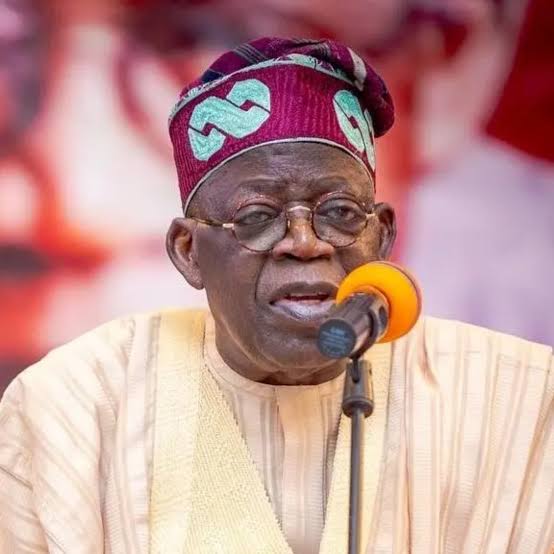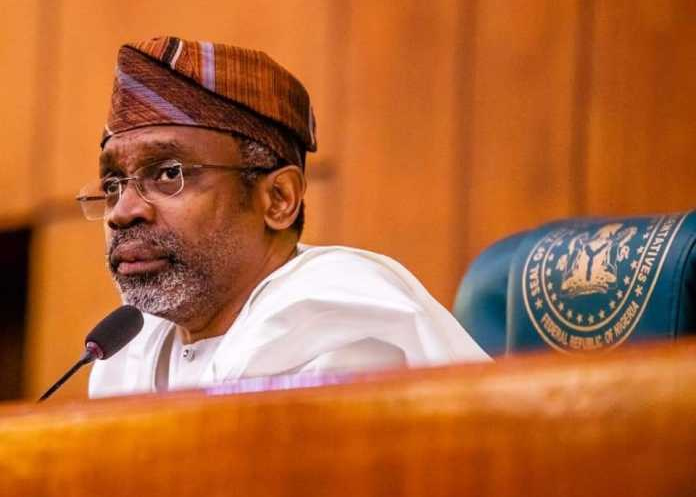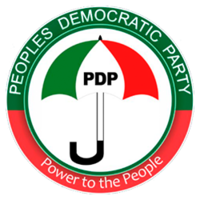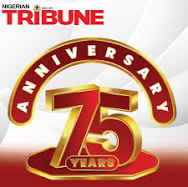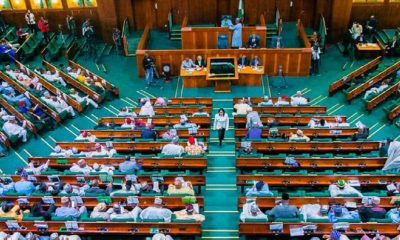Editorial
Press Freedom under threat as President Tinubu’s media crackdown raises concerns in a startling move that has sent shockwaves through Nigeria’s media landscape,

President Bola Tinubu has barred several broadcast journalists and prominent media houses from covering activities at the Aso Rock Presidential Villa.
This decision, which restricts media access to a select few outlets, has raised significant concerns about press freedom, the democratic process, and the very essence of an informed society.

The Nigerian Constitution explicitly upholds the press’s role as a guardian of democracy, empowering it to hold the government accountable to the people.
Section 22 of the Constitution states that “the press, radio, television, and other agencies of the mass media shall at all times be free to uphold the fundamental objectives contained in this chapter and uphold the responsibility and accountability of the government to the people.
“However, the recent actions by President Tinubu, which exclude broadcast journalists, camera men and photojournalists from media outlets such as GalaxyTv, BenTV, MITV, ONTV, ITV Abuja, Liberty, Vanguard, and others from covering the Presidential Villa, cast a dark shadow over this constitutional commitment.
The fact that more of the affected journalists are video/broadcast journalists underscores the severity of the situation, as the medium’s impact is not limited to print but extends to the hearts and minds of millions through still pictures, moving images and sounds.
The gravity of President Tinubu’s media crackdown is underscored by the manner in which the access tags of the affected journalists were collected on Friday by security officers, without providing any explanation for their exclusion.
This departure from best practices not only raises questions about transparency but also showcases a lack of respect for the media’s vital role in fostering an informed citizenry.
The failure of media outlets like Channels, TVC, AIT, Arise TV, STV, Vanguard, Punch, and others, which were not affected by this crackdown, to report on this significant development is equally disconcerting.
Their silence can be interpreted as an attempt to protect their interests or remain in favor with the authorities.
This division within the journalism profession, where some media houses shy away from highlighting the infringement on press freedom, further weakens the collective strength of the Fourth Estate.
This clampdown on media access has far-reaching implications for Nigeria’s democracy and the freedom of speech that it upholds.
The media serves as a vital check on the government’s power, enabling citizens to be informed and engaged participants in the democratic process.
By limiting access to a select few outlets, President Tinubu risks distorting the flow of information and creating a narrative that lacks the diversity of perspectives required for an informed citizenry.
The authorities have directed the journalists from the affected media houses to source video clips from those that have not been subjected to the crackdown.
However, this approach undermines independent reportage and raises concerns about potential information distortion.
The move raises concerns of censorship and undue control over the media, elements that are antithetical to the principles of a free press.
Censorship often leads to a manipulated version of events, stripping the public of the right to hear different voices and interpretations.
This not only compromises press freedom but also erodes trust in the government and its intentions.
History has shown that restricting media access and silencing dissenting voices can have disastrous consequences for democratic societies.
Examples from around the world serve as cautionary tales. In countries like Turkey, Egypt, and Russia, governments have tightened their grip on media outlets, leading to a decline in press freedom, human rights violations, and the erosion of democratic values.
In the Philippines, former President Ferdinand Marcos imposed martial law and curtailed press freedom, leading to a decade-long period of dictatorship and human rights abuses.
The aftermath of media crackdowns often reveals a lack of accountability and transparency, allowing governments to operate with unchecked power.
The outcry against President Tinubu’s media crackdown must be massive and resounding. Civil society, media organizations, and citizens alike must unite to defend the principles enshrined in the Constitution and the fundamental role of the media in preserving democracy.
A free press is not a privilege; it is a cornerstone of a healthy democracy that cannot be sacrificed for political expediency.
The media’s duty to inform, educate, and empower the public transcends political agendas.
The collective voice of the people, guided by the principles of a free press, can send a powerful message to the government – that an informed citizenry is a formidable force that cannot be ignored.
As Nigeria navigates this critical juncture, the preservation of press freedom and democratic values stands as a non-negotiable imperative for a just and equitable society.


